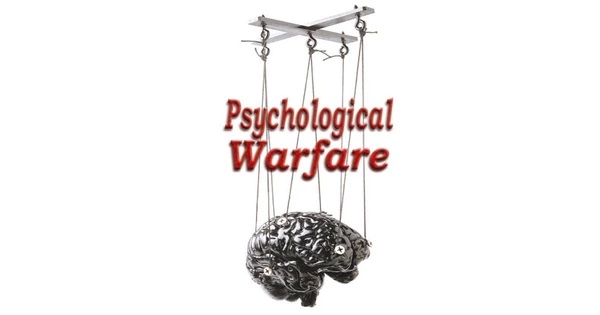Psychological warfare, often known as psywar or psyops (psychological operations), is a type of non-kinetic warfare that seeks to affect the emotions, beliefs, and behaviors of individuals or groups of people. Many other titles and terms have been used to describe it, including Military Information Support Operations (MISO), Psy Ops, political warfare, “Hearts and Minds,” and propaganda. The expression is frequently used “to denote any action which is practiced mainly by psychological methods with the aim of evoking a planned psychological reaction in other people”.
Various strategies are used to influence the value system, belief system, emotions, motives, reasoning, or behavior of a target audience. It is sometimes paired with black operations or false flag methods to coerce confessions or reinforce attitudes and actions conducive to the originator’s intentions. It is also used to degrade enemy morale by employing psychological warfare tactics on troops.
It employs psychological tactics and strategies to attain strategic goals, which are frequently used in support of military or political activities. Governments, military groups, intelligence agencies, and other entities may deploy psychological warfare in numerous forms.
Here are some key aspects of psychological warfare:
- Propaganda: The dissemination of information, often with a biased or misleading slant, to shape public opinion. Propaganda can be spread through various media, including newspapers, radio, television, and the internet.
- Deception: Psychological warfare often involves the use of deception to mislead the enemy or manipulate perceptions. This can include spreading false information, creating fake documents, or conducting disinformation campaigns.
- Fear and Threats: Instilling fear or creating a perception of impending danger can be used to weaken an opponent’s resolve or control the behavior of a target population. Threats, intimidation, and the display of military or other forms of force can be part of this strategy.
- Psychological Operations: These are actions that are specifically meant to affect target populations. They can involve leaflet drops, radio broadcasts, and other means of communicating messages, promoting certain ideologies, or demoralizing the opponent.
- Demoralization: It may be used to destroy an opponent’s morale and will, rendering them more susceptible to capitulation or withdrawal. This can include making the opposition appear invincible or fostering division among their ranks.
- Counter-Psychological Operations: Counter-psychological operations are efforts to defend against psychological warfare. Spreading counter-propaganda, boosting resilience, and dispelling incorrect information are some examples.
















